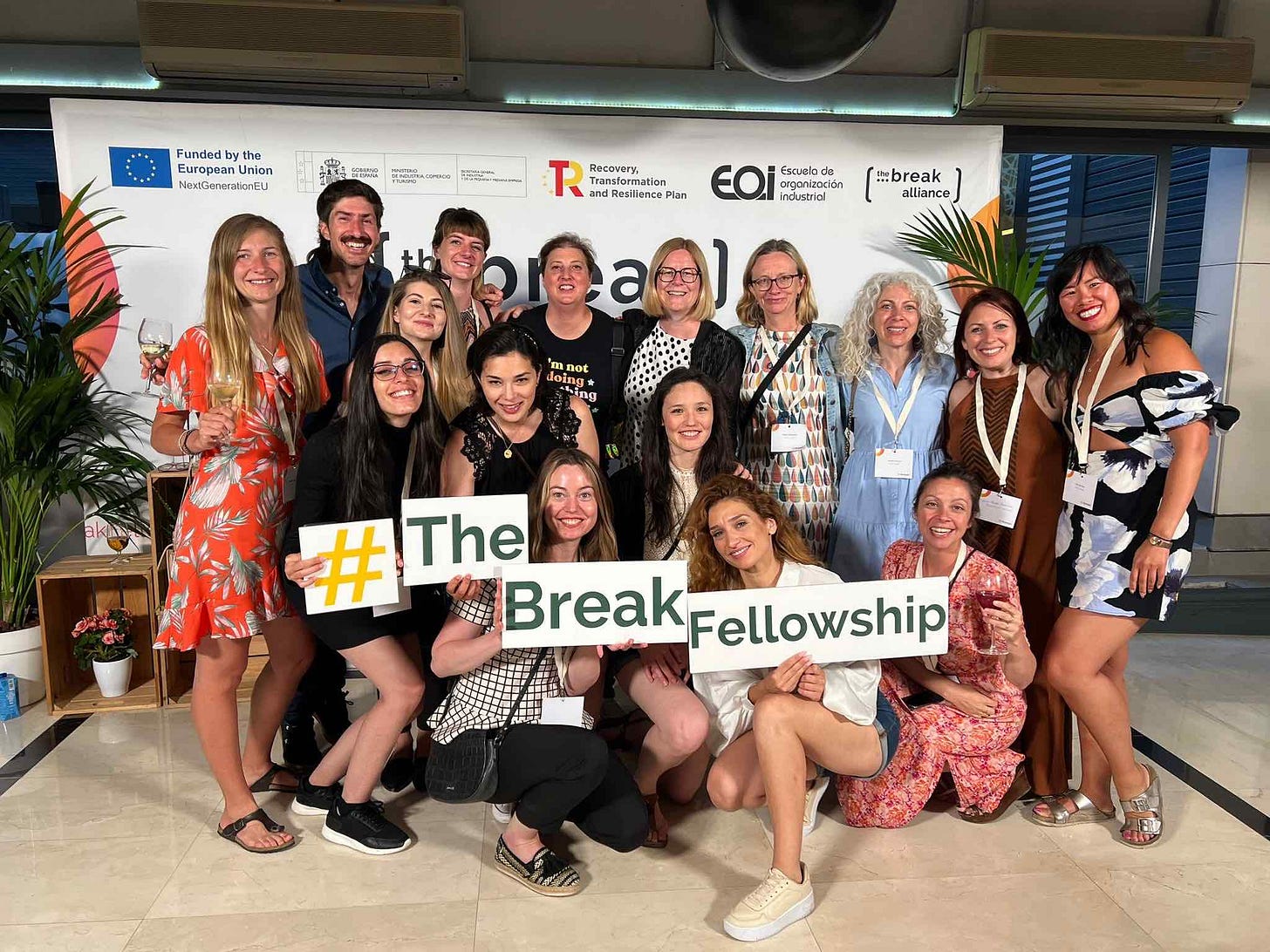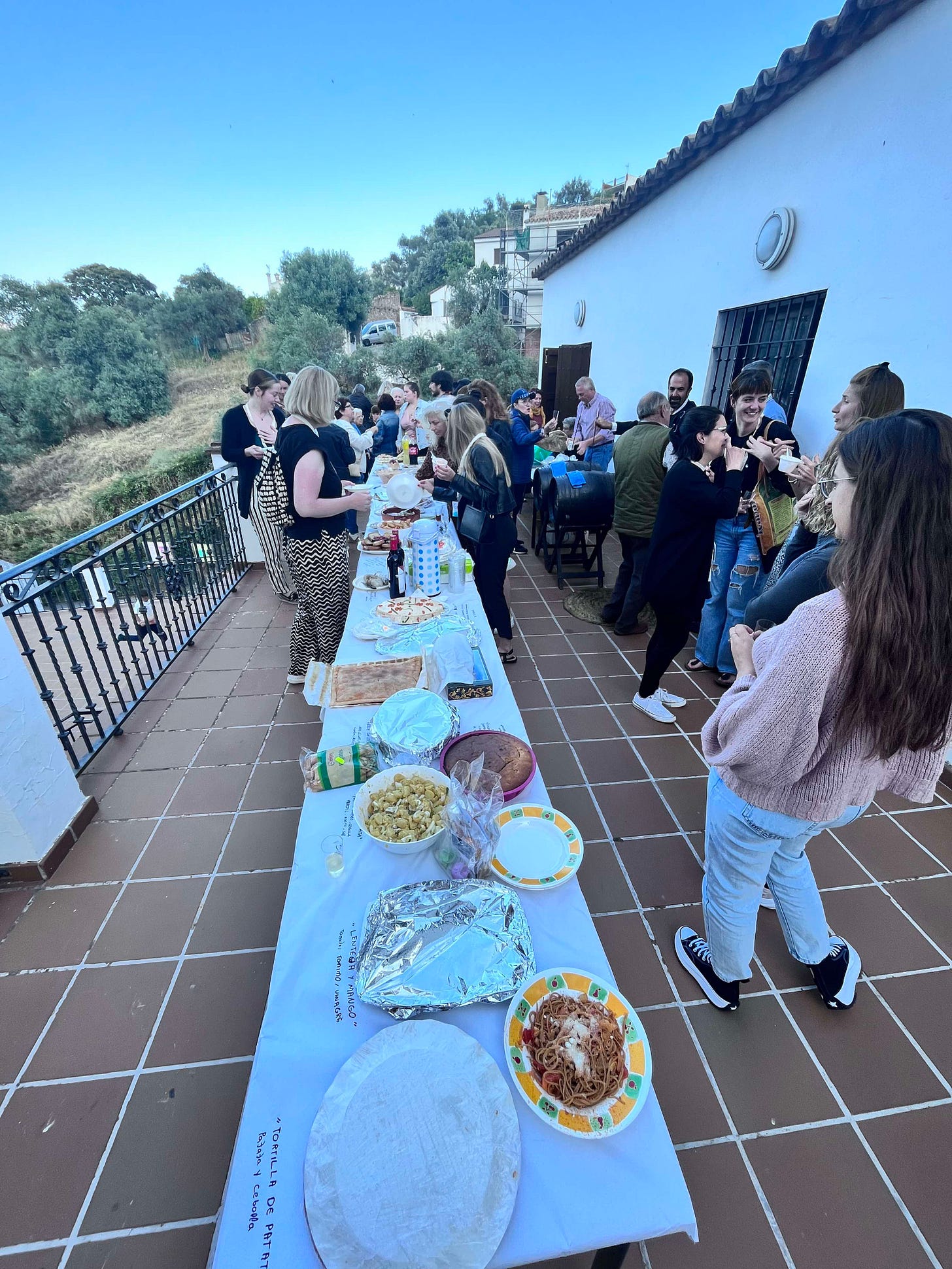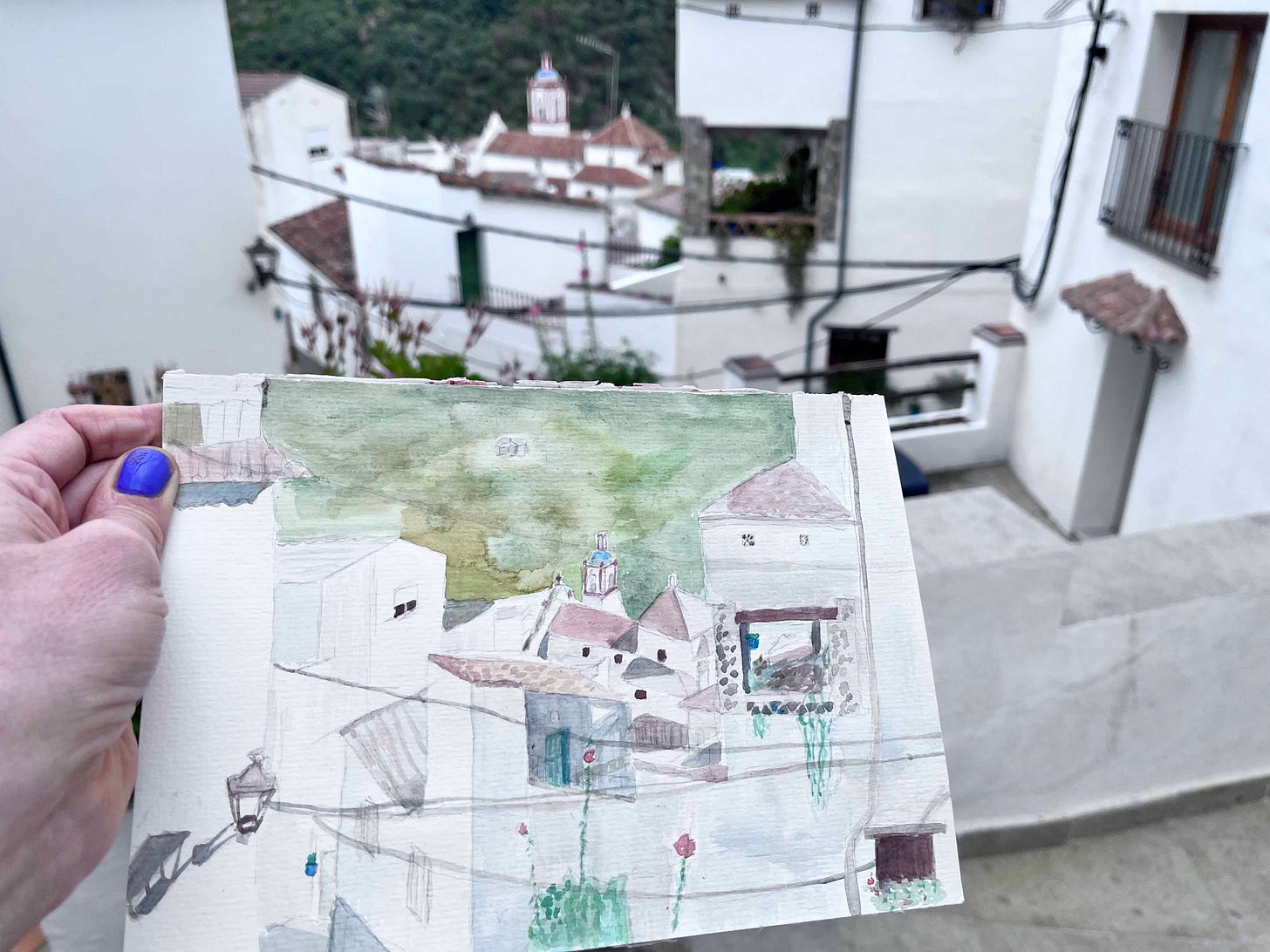I am driving home after a day in the countryside outside Berlin. A yellow warning light flashes up on the dashboard along with a message suggesting we check the oil next time we fill up. I ignore it. It is drizzling and dark. Three teenagers are dozing on the backseat. Our cat is yowling in his box. It doesn’t seem that urgent, so I watch the temperature gauge and keep driving. As we turn off the motorway on the outskirts of the city, the engine starts grumbling. I keep on driving. We are all desperate to get home. I am recovering from a bad cold.
Do what I say, not what I do
It has been a busy - and rewarding - few weeks. I have completed a fellowship for women entrepreneurs. I have written my first business plan. I have spoken at a conference about how to make journalists more resilient. I have run workshops for senior media managers on how to create better working environments and minimise the risk of burnout. I have taken part in training for a new helpline for journalists suffering from stress and trauma. But I have not practiced what I preached there.
As the growls from the engine get louder, my son urges me to pull in at a service station. But I am gunning for home, and I can’t even remember how to open the bonnet of the car, let alone change the oil. I keep driving. As we reach the city, we smell burning. A few seconds later, the car stops dead in the middle of the road. I put on my hazards and, when the road is clear, urge the kids to jump out, get on the tram and take the cat home while I wait for help.
A police car turns up and pushes the car to the side of the road. At midnight, a tow truck arrives. The mechanic says the car has been leaking oil for a while, probably since we hit a pothole earlier in the day. By ignoring the warning light, I have destroyed the motor. It will either cost thousands of euros to get a new engine or we will have to scrap the car.
The symbolism is overwhelming. My personal warning lights have been flashing for weeks and I have been ignoring them too. The car engine has burned out. Running on empty. Pick your metaphor.
Burnout warning signs
These are some of the signs of burnout that a trainer presented at a recent joint workshop: intense fatigue, restless sleep, more irritable than normal, more emotional than normal, feel like you are rushing all the time, hard to concentrate, worrying a lot, more aches and pains than usual. If you are experiencing more than three of those, there is a high chance you are experiencing chronic stress, she told participants.
My daily life is characterised by at least three of those. Rushing and worrying are nothing new for me: they define modern motherhood. For the first time in years, I was freed of maternal concerns during the “Break” fellowship that enabled me to spend three weeks in rural Spain. I did manage to slow down a bit (see my last blog) but instead of taking the opportunity to rest, I hungrily sampled every new experience on offer: daily hikes in the woods, visits to art festivals, workshops on numerous topics, advising the other fellows, a local challenge to help young people in the village. I did allow myself to sit under a flowering jacaranda tree at the local hotel for a few minutes, but it wasn’t long before I felt I compelled to swim lengths rather than read a novel. Despite bringing art materials with me, I only found the time to do one painting. My time in Benarraba felt like being a guest at a lavish banquet where I wanted to try all the dishes, and ended up overindulging. In fact, the village did host a welcome party where we brought specialities from our own countries in exchange for paella, empanadas, tortillas, serrano ham and wine laid on by the locals. My favourite was a garlic-laden Bulgarian dip made of roasted red peppers. My Caribbean banana bread seemed to go down quite well with the old ladies and children.
At the end of the fellowship in Madrid, we were warned that entrepreneurs have a high risk of burnout as they are motivated to make their businesses succeed at all costs. “There is no single professional project, no matter if you are changing the world, that deserves your burnout. You cannot have a positive impact if you are not feeling well,” Eva Curto from Spanish business school EOI told the fellows. Instead of returning from the “Break” rejuvenated, I came home feeling intense fatigue and only had my first siesta back in Germany. But I had little time to rest because I had several important projects lined up as soon as I got back.
(For my fellowship, I am conducting an anonymous survey on workplace stress - please click here to take part)
Exhilarating and overwhelming
When I left Reuters last year, I promised myself a breather. Did I keep that promise? Of course not. I have worked more hours than when I was employed. I rarely used to stay up working late - now I do. I have pushed myself out of my comfort zone repeatedly. I have learnt how to conduct audience research, pitch a project, deliver workshops and classroom lessons, and produce visual recordings. I have launched this newsletter, created TikTok videos and a website, done interviews for TV and Instagram and organised a community project. Unfortunately, I also dropped habits that keep me sane like regular art classes, yoga and morning walks in the park.
The car breakdown was a timely reminder to top up my own oil levels, especially ahead of moving to a new apartment in Berlin in August. After a year of saying “yes” to every new opportunity, I have forced myself to say “no” a few times, even to things I really wanted to do. One major regret on that front: I decided against travelling to London to the birthday party of one of my closest friends – that was the same evening I destroyed the car engine.
My mid-year’s resolution is to watch Wimbledon and sit and read the books that have been piling up by my bed. Sandra Dalton-Smith suggests we need seven types of rest, not just sleep: physical, mental, sensory, creative, emotional, social and spiritual. After so much stimulation in the last few months, I am yearning for sensory rest at the moment. I need to build up some reserves for the emotional wrench of moving house as I sort through 10 years of toys, books, drawings and schoolwork that is the bulk of my sons’ childhoods. We have already boxed up dozens of soft toys, that will live in the cellar from now on, but are still considered part of the family…
I also want to practice what I preach on digital addiction. Writing this newsletter and being more active on social media means I have been checking my phone more often than I know is healthy. After I publish this, I will delete the Instagram and TikTok apps and not sign up for Threads, at least until the end of the summer.
I am keen to complete a few paintings I started and then abandoned in the last year. You can help me with this by expecting some new pictures in my next post. But I also want to give myself permission not to create or produce anything for a few weeks. So, I expect to be back to writing in September when the boxes are unpacked and the car is hopefully repaired. Wishing you all a restful summer.
What I am reading:
Homage to Catalonia - George Orwell (During my time in Spain, I wanted to understand more about the country’s history - it is shocking to read Orwell’s descriptions of the fighting on the Ramblas in the centre of Barcelona)
A Long Petal of the Sea - Isabel Allende - a saga about a family forced into exile in Chile by the Spanish civil war
Siblings - Brigitte Reimann (translated by my friend Lucy Jones) - an autobiographical novel about an East German artist trying to persuade her brother not to flee to the west - a fascinating account of idealism morphing into disillusionment in the early days of the GDR.







